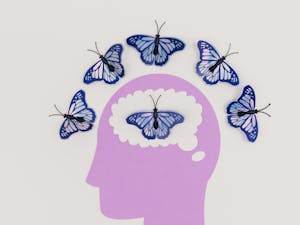A throbbing pain in the temples, a dull ache behind the eyes, or a vice-like tension squeezing your entire skull – you’ve probably experienced one of these types of headaches. They can be disruptive, derailing your plans for the day, or even just making life seem a bit more challenging. The good news is that there are natural remedies to help alleviate these common health issues, and they don’t involve a trip to the pharmacy.
Understanding the Different Types of Headaches
Before we delve into the world of natural remedies for headaches, let’s first understand the different types of headaches that people commonly experience. This understanding can help in identifying the most effective treatment options.
Also read : What are the health benefits of regular stretching?
Migraines
Migraines are more than just severe headaches. They are a neurological condition characterized by intense, debilitating headaches. Symptoms may include nausea, pain behind one eye or ear, pain in the temples, seeing spots or flashing lights, sensitivity to light and/or sound, temporary vision loss, and vomiting.
Tension headaches
These are the most common type of headache among adults and teens. They cause mild to moderate pain and often feel like a tight band around your forehead or at the back of your head.
Additional reading : The secrets of an anti-aging diet
Cluster headaches
These are severe headaches that tend to occur in groups or “clusters.” Cluster headaches are one of the most painful types of headache.
Natural Remedies for Headaches
There are several natural remedies that can help alleviate the pain from headaches. These are not only effective but are also less likely to cause side effects that are common with some medications.
Hydrate with Water
Dehydration is a common trigger for headaches. The good news is that this is easily fixed – drink more water. Adequate hydration can help reduce the intensity and frequency of headaches. Keeping a water bottle at your side and sipping throughout the day can help keep headaches at bay.
Prioritize Sleep
Sleep deprivation can be a big contributor to headaches. It’s important to prioritize good quality sleep. This means maintaining a regular sleep schedule, creating a restful environment, and dealing with any sleep problems such as insomnia or sleep apnea.
Incorporate Magnesium
Magnesium is a mineral that’s been proven to help alleviate migraines. Incorporating foods rich in magnesium into your diet, such as almonds, sesame seeds, and sunflower seeds, can help reduce the frequency of migraines.
Consume Vitamin B2
Vitamin B2, also known as riboflavin, has been shown to reduce the frequency of migraines. It can be found in foods like milk, cheese, fish, and chicken.
Dietary Changes to Reduce Headaches
What we eat can have a significant impact on our health, and this includes the frequency and severity of headaches. Certain foods are known to trigger headaches, especially migraines.
Consuming a Balanced Diet
Eating a well-rounded diet can help maintain overall health and prevent headaches. A balanced diet includes a variety of fruits, vegetables, lean proteins, healthy fats, and whole grains.
Avoiding Food Triggers
Certain foods are known to trigger headaches, especially migraines. These can include aged cheese, alcohol, chocolate, food additives like nitrates and artificial sweeteners. Keeping a food diary can help identify potential food triggers.
Stress Management for Headache Relief
Stress is one of the most common headache triggers. While it’s impossible to eliminate all sources of stress, managing your stress levels can help reduce the frequency and severity of headaches.
Regular Exercise
Physical activity can help reduce tension and ward off stress, two common triggers of headaches. Regular exercise, whether it’s a brisk walk, a bike ride, or a yoga class, can help keep headaches at bay.
Mindfulness and Relaxation
Practices such as mindfulness, relaxation, and deep breathing can help reduce stress and alleviate headache pain. Regular practice of these techniques can help manage headache symptoms and improve overall well-being.
Headaches can be a real pain, but the good news is that you don’t always have to reach for the medicine cabinet. By choosing natural remedies and making lifestyle changes, you can reduce the frequency and severity of your headaches. There’s no one-size-fits-all approach to headache management, so it may take some time and experimentation to find what works best for you. But the freedom from pain is well worth the effort.
Essential Oils for Headaches
The use of essential oils for health purposes has gained popularity in recent years. These aromatic oils, derived from plants, are often used in aromatherapy to promote well-being and treat a variety of ailments – including headaches.
Peppermint Oil
Peppermint oil is particularly effective for tension headaches, the most common type of headache. The active ingredient in peppermint oil, menthol, can help relax muscles and ease pain. It’s usually applied to the temples or back of the neck.
Lavender Oil
Frequently used for stress relief and relaxation, lavender oil can also be beneficial for treating headaches, particularly migraine attacks. Inhaling lavender oil can help reduce migraine pain and associated symptoms.
Eucalyptus Oil
Known for its powerful anti-inflammatory properties, eucalyptus oil can be used to treat sinus headaches. Inhaling eucalyptus oil can help clear the sinuses, reducing headache pain.
Remember, before applying any essential oil to the skin, it’s important to dilute it with a carrier oil, like coconut or jojoba oil, to prevent skin irritation.
The Role of Cold Compress in Alleviating Headache Pain
A cold compress is another simple, yet effective natural remedy for headaches. Applying a cold pack or even a bag of frozen peas to the forehead can help constrict blood vessels and reduce inflammation, offering relief from headache pain.
For Tension Headaches
For tension headaches, applying a cold compress to the forehead for 15 minutes may help reduce symptoms.
For Migraine Headaches
During a migraine attack, applying a cold compress to the area of pain can help numb it, reducing the severity of the headache.
For Cluster Headaches
In the case of cluster headaches, applying a cold compress to the area behind the eye can often provide some relief.
Conclusion
Headaches can be a significant hindrance to daily life, but thankfully, there are a number of natural remedies available to help manage headache symptoms. From staying well-hydrated and getting plenty of sleep, to eating a balanced diet and managing stress, these lifestyle changes can significantly reduce headache frequency and intensity.
In addition, essential oils and cold compresses provide further alternatives for those looking for natural ways to alleviate headache pain. As there’s no one-size-fits-all solution, finding the best approach may require some trial and error. But with patience and persistence, relief from headaches is achievable.
Remember, while these remedies can be effective, they’re not intended to replace medical treatment. If you’re experiencing severe or frequent headaches, it’s important to seek advice from a healthcare professional to rule out underlying health conditions.











